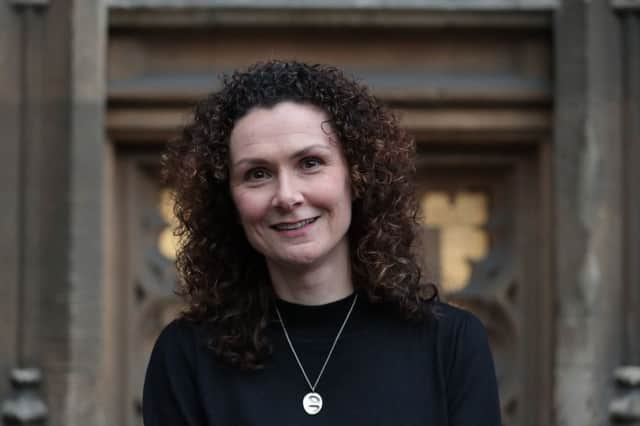New Lib Dem MP insists party must keep anti-Brexit stance


Wendy Chamberlain, who won North East Fife from the nationalists, admitted that the Lib Dems’ controversial policy of revoking Brexit had made life difficult for candidates, but refused to say it was the wrong choice for former leader Jo Swinson – who lost her East Dunbartonshire seat.
Chamberlain has been tipped as a rising star of the new parliament and a future leadership prospect for the Lib Dems, but told Scotland on Sunday she was ruling herself out of the race to succeed Swinson.
Advertisement
Hide AdAdvertisement
Hide AdAsked if the revoke policy had contributed to the Lib Dems’ failure to capitalise on promising early polls and passionate pro-Remain support, Chamberlain said she was “not going to say outright” that the stance was wrong.
“I think the top-line message of it was difficult to get across. When you talked it through it made more sense, but the reality is that when you have a strategy that you have to explain, or a policy that you have to explain, that’s not ideal, is it?”
But she added: “Six million people signed the petition for revoke. Certainly we were getting squeezed in areas where we weren’t competitive… I think we have to remember that we were a party where our increase in membership has come about as a result of our pro-EU position and our policy is voted on by our membership.”
Chamberlain said that despite the UK leaving the EU at the end of January, her party should stick to its principles and oppose Brexit.
“The first thing to say is, we’re not a single issue party – our support for the EU doesn’t come from a sort of blinkered single issue approach.
“It’s because we are an internationalist outward-looking party and so that’s worth defending.
“Yes, the Brexit situation is changing, but I think we can move to a position where we continue to oppose Brexit.
“If you look at North East Fife in particular, St Andrews University is our main employer, and also for our tourism and agriculture, there are no good outcomes from Brexit, regardless of what’s coming over the next 12 months.”
Advertisement
Hide AdAdvertisement
Hide AdChamberlain compared the Lib Dems’ position to that of Labour in Scotland, which she said had suffered in the election because of confusion over its stance on Brexit and a second Scottish independence referendum.
“That for me is an explanation of why Scottish Labour is in the position it is in, that it has failed to be clear,” she said.
“You go back again to the fact that the Lib Dems didn’t have a successful night, but we were very clear on what we stood on, and I believe that what we stood on was firmly embedded in our overall principles as a party.
“And I think the reason Labour are in the position they’re in is because they are not clear what they are anymore, particularly in Scotland, and what voters they appeal to in Scotland as a result.”
The new MP said she was keen to work on issues in parliament including promoting participation in sport – she sits on the board of the Camanachd Association, the governing body for Scottish shinty – and on supporting resettlement of service personnel and their families, with the Leuchars military base in her constituency.
Chamberlain praised the support she has received as a candidate from her party, having only joined the Lib Dems in 2015, and as a new MP over the past week from parliamentary authorities.
But she said more has to be done to ensure people from all walks of life are able to run for parliament.
“I’m conscious I’m in a very fortunate position that I was able to take six weeks out of full time work to campaign,” said Chamberlain, who has spoken about having to use her Christmas bonus to cover lost earnings during the election.
“The socio-economic diversity within parliament generally is pretty poor, and part of that is because the money involved to become a candidate is in many cases prohibitive.”